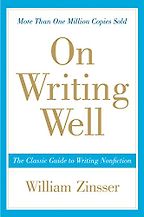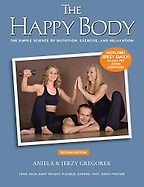Books by Barbara Oakley
“I highly recommend the course as a companion to this book. It can be challenging to get people to approach math because it is a topic that most people are afraid of, and Oakley does a great job of making it seem less intimidating. A few of the key concepts in this book come back to analogies. Oakley identifies two modes of thinking: focus mode and diffuse mode. We might be in focus mode when we’re learning math, crunching through arithmetic, and solving problems step by step. We are in diffuse mode when we’re looking for connections and analogies and trying to form a big picture. We need both of these modes. Most people think only about focus mode, because this engages us in the type of learning that prepares us for a test; however, part of learning requires getting familiar with diffuse mode. Oakley demonstrates that diffuse mode is equally integral to learning. If you’re explaining a topic (and particularly if this topic is new to the listener), you might share some of the analogies that have helped you and let people explore them instead of discussing it in purely technical terms. Another key concept she discusses is chunking, which involves breaking information or concepts into more easily digestible pieces. It is useful to look at the big picture in the beginning. Then, you work on these pieces or chunks and get to grips with them, and then step back and see how they connect.” Read more...
Interviews where books by Barbara Oakley were recommended
-

1
Don't Make Me Think: A Common Sense Approach to Web Usability
by Steve Krug -

2
A Mind for Numbers: How to Excel at Math and Science (Even If You Flunked Algebra)
by Barbara Oakley -

3
On Writing Well: The Classic Guide to Writing Nonfiction
by William Zinsser -

4
The Non-Designer's Design Book
by Robin Williams -

5
The Happy Body: The Simple Science of Nutrition, Exercise, and Relaxation
by Aniela & Jerzy Gregorek
The best books on Technical Communication, recommended by Kalid Azad
The best books on Technical Communication, recommended by Kalid Azad
Communicating clearly about complex issues is somewhere between an enviable talent and a workplace necessity. For those teaching STEM subjects, it’s absolutely critical. Programmer and maths author Kalid Azad recommends five useful books for communicating technical subjects effectively.




